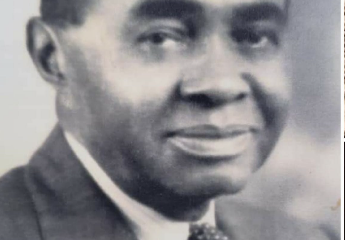Education
Children are Losing the Fight for Their Future, and It’s Happening During The Summer

by Earl Martin Phalen
Far too many children in the US do not currently have access to a high quality education. In fact, a review of recent NEAP scores clearly demonstrates that most children are not receiving an education that helps them to achieve mastery of basic skills, the most fundamental function of education.
What is to be done?
Those involved in improving the quality of education know that there are two major levers that impact student performance: people and time. Those focused on people generally work to ensure strong school leadership, highly qualified teachers in every classroom and engaged parents. Those focused on time have implemented strategies ranging from longer class periods to extended school days.
Unfortunately, one of the most effective strategies for impacting student achievement, summer learning, has gone virtually unused.
Summer Learning
Summer learning – not to be confused with punitive summer school – provides children with a rich array of academics and enrichment (i.e., art, music, drama, physical fitness and community service); connects children with experienced educators and caring adult mentors; and engages parents more deeply in the education of their children.
There is over 100 years of evidence that demonstrates the power of summer learning (White, 1906; Heyns, 1978; Entwisle & Alexander 1992; Cooper, 1996; Downey et al, 2004). In fact, there is no greater body of research regarding the potential of a strategy to positively impact the learning of children. Recent studies by Dr. Beth Miller and Dr. Karl Alexander demonstrate that differences in summer learning opportunities contributes 3.5 months each year to the achievement gap between low-income and middle-income students. By the end of 5th grade, students living in low-income communities are two years behind their middle-class peers in verbal achievement as a result of summer learning loss.
The Significance of Summer Learning
Summer learning loss has far-reaching implications. As has been frequently cited, US global competitiveness is suffering. In a recent OECD study, we rank 23rd out of 29 countries in a comparison of literacy, math and science skills. In many of the countries that are outperforming us, like India and China, children attend school an average of 30-45 more days each year. Over the course of a K-12 education, these students will receive an additional two-three years of schooling.
Imagine if children had access to high quality summer learning programs:
- Children would make tremendous academic gains every summer;
- Children would participate in daily physical fitness through recess and physical education;
- Children’s imaginations would be challenged and expanded through art, music, drama, guest speakers, field trips and community service projects; and
- Children would feel safe, supported, challenged and loved.
The Success Stories
By engaging all children in high quality summer learning programs, we can increase state test scores, improve high school graduation rates, reduce risky behavior and, most importantly, ensure all children receive a well-rounded, high quality education.
Models like Aim High, Higher Achievement Program, BELL and Horizons National are out there. We must invest in bringing these evidence-based programs to the millions of children who want access to them.

-

 Black History5 months ago
Black History5 months agoThe untold story of a Black woman who founded an Alabama hospital during Jim Crow
-

 Featured8 months ago
Featured8 months ago‘No Closure’ In Town Where Five Black Residents Were Either Murdered, Died Suspiciously Or Are Missing
-

 Black History9 months ago
Black History9 months agoBlack History Lost and Found: New Research Pieces Together the Life of Prominent Texas Surgeon and Activist
-

 Featured9 months ago
Featured9 months agoFounder of “The Folding Chair” Podcast Calls Montgomery’s Brawl ‘Karma’
-

 Featured8 months ago
Featured8 months agoThousands ‘Live Their Dream’ During National Black Business Month
-

 Featured10 months ago
Featured10 months agoJuneteenth And ‘246 Years Of Free Labor’ Are Key To Conversations About Reparations

